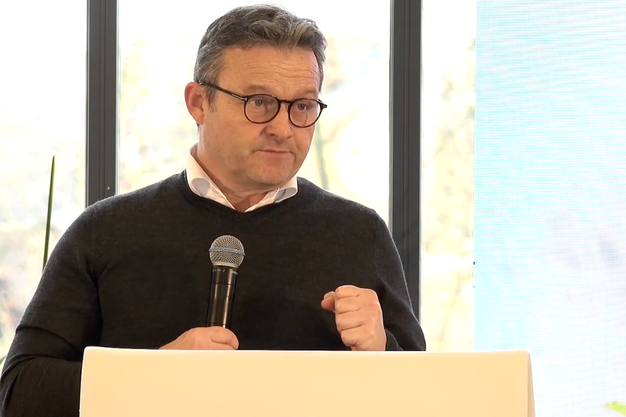Latvian vote to pull out of treaty on protecting women from violence prompts outcry – BBC

Report on Latvia’s Parliamentary Vote to Withdraw from the Istanbul Convention and its Implications for Sustainable Development Goals
Executive Summary
The Latvian Parliament has voted to initiate withdrawal from the Council of Europe Convention on preventing and combating violence against women and domestic violence, commonly known as the Istanbul Convention. This decision represents a significant challenge to the advancement of the United Nations Sustainable Development Goals (SDGs), particularly SDG 5 (Gender Equality) and SDG 16 (Peace, Justice, and Strong Institutions). The final decision rests with President Edgars Rinkevics.
Direct Conflict with SDG 5: Gender Equality
The parliamentary action directly contravenes the principles and targets of SDG 5, which aims to achieve gender equality and empower all women and girls.
- Undermining Target 5.2: The primary objective of the Istanbul Convention is to create a legal framework to eliminate all forms of violence against women and girls, which aligns perfectly with SDG Target 5.2. Withdrawal from this treaty weakens the national commitment to this fundamental goal.
- Ignoring Calls for Equality: The vote proceeded despite significant public opposition, including protests attended by Prime Minister Evika Silina and a petition signed by 22,000 people, indicating a disconnect between the legislative action and the public’s support for gender equality.
- Setback for Women’s Rights: Human rights organizations, including the Council of Europe and Equality Now, have described the move as a “deeply worrying step backwards for women’s rights,” highlighting the regression from established international standards for gender equality.
Implications for SDG 16: Peace, Justice, and Strong Institutions
The decision also has severe implications for SDG 16, which focuses on promoting peaceful and inclusive societies, providing access to justice for all, and building effective, accountable institutions.
- Weakening Legal Frameworks: By withdrawing from an international accord designed to protect citizens, Latvia is weakening its institutional framework for combating violence, a key component of SDG Target 16.1 (Significantly reduce all forms of violence).
- Erosion of International Cooperation: As the first EU member state to move towards withdrawal, Latvia’s action sets a precedent that could undermine broader European and international efforts to uphold human rights and the rule of law, as promoted by SDG 16.
- Disinformation and Institutional Integrity: The head of the Council of Europe’s parliamentary assembly noted the decision was “fuelled by disinformation,” which challenges the integrity of the legislative process and the state’s commitment to evidence-based policymaking essential for strong institutions.
Political and Procedural Details
The vote followed a protracted and contentious debate, reflecting deep societal and political divisions on the issue.
- Legislative Process: After a 13-hour debate, Members of Parliament voted 56 to 32 to approve the law for withdrawal. The motion was sponsored by opposition parties and supported by a member of the ruling coalition.
- Opposing Arguments: Proponents of the withdrawal, such as the Latvia First party, framed the convention as a promotion of “gender ideology” that undermines “natural family” values.
- Presidential Review: As the vote did not achieve a two-thirds majority, President Edgars Rinkevics has the authority to return the bill to parliament for reconsideration. He has stated he will assess the decision based on constitutional and legal grounds rather than political ideology.
- Statistical Context: Data from the European Institute for Gender Equality (EIGE) indicates that 142 incidents of intimate partner violence against women were reported in Latvia in 2022, underscoring the ongoing need for robust protective measures aligned with the SDGs.
SDGs Addressed in the Article
-
SDG 5: Gender Equality
This goal is central to the article, which discusses Latvia’s vote to withdraw from the Istanbul Convention, an international treaty specifically designed “at protecting women from violence, including domestic abuse.” The debate around the treaty, the protests, and the arguments concerning “gender equality” and “women’s rights” directly connect to the core mission of SDG 5, which is to achieve gender equality and empower all women and girls.
-
SDG 16: Peace, Justice and Strong Institutions
The article touches upon issues of law, human rights, and international agreements. The decision by Latvian MPs to withdraw from an international accord, the role of the President in approving the law, and the potential appeal to the Constitutional Court all relate to the strength and reliability of national and international legal institutions. The withdrawal is described as a “huge setback by top human rights body the Council of Europe” and an “unprecedented and deeply worrying step backwards for women’s rights and human rights in Europe,” which directly relates to promoting just, peaceful, and inclusive societies.
Specific SDG Targets Identified
-
Target 5.2: Eliminate all forms of violence against all women and girls in the public and private spheres.
This target is the most directly relevant. The entire article revolves around the Istanbul Convention, a treaty that “requir[es] governments to develop laws and support services to end all violence” against women. The debate in Latvia is precisely about the country’s commitment to this goal. The article cites statistics on “intimate partner violence against women,” which is a key component of this target.
-
Target 16.1: Significantly reduce all forms of violence and related death rates everywhere.
The article’s focus on “violence against women” and “domestic abuse” aligns with this target’s aim to reduce all forms of violence. The mention that after Turkey abandoned the treaty, “femicide and violence against women had risen sharply” explicitly links the legal framework to violence and death rates, which is the core of Target 16.1.
-
Target 16.3: Promote the rule of law at the national and international levels and ensure equal access to justice for all.
Latvia’s potential withdrawal from an international human rights treaty is a matter of the rule of law at both national and international levels. The treaty itself is a tool to ensure access to justice for victims of violence. The political and legal process described—the parliamentary vote, the President’s constitutional assessment, and a potential appeal to the Constitutional Court—are all elements related to the functioning of the rule of law and justice systems.
Indicators Mentioned or Implied
-
Indicator for Target 5.2: Proportion of women subjected to physical or sexual violence.
The article explicitly provides data that can be used as an indicator. It cites the European Institute for Gender Equality (EIGE), stating that “142 incidents of intimate partner violence against women were reported across Latvia in 2022. This was above the 109 offences recorded in 2021.” This data on reported incidents of intimate partner violence is a direct measure used to track progress towards eliminating violence against women, corresponding to Indicator 5.2.1.
-
Indicator for Target 16.1: Number of victims of intentional homicide.
The article implies an indicator for this target by referencing the consequences of Turkey’s withdrawal from the same treaty. It states that “femicide… had risen sharply” in Turkey. Femicide, the intentional killing of women because of their gender, is a direct measure of violence-related death rates and corresponds to Indicator 16.1.1 (Number of victims of intentional homicide per 100,000 population, by sex and age).
Summary of Findings
| SDGs | Targets | Indicators |
|---|---|---|
| SDG 5: Gender Equality | Target 5.2: Eliminate all forms of violence against all women and girls in the public and private spheres. | (Indicator 5.2.1) The article cites EIGE data on “142 incidents of intimate partner violence against women were reported across Latvia in 2022.” |
| SDG 16: Peace, Justice and Strong Institutions | Target 16.1: Significantly reduce all forms of violence and related death rates everywhere. | (Indicator 16.1.1) The article implies this indicator by mentioning that “femicide… had risen sharply” in Turkey after it withdrew from the treaty. |
| Target 16.3: Promote the rule of law at the national and international levels and ensure equal access to justice for all. | The article discusses Latvia’s withdrawal from an international treaty (the Istanbul Convention), which is a mechanism for the rule of law and access to justice for victims. |
Source: bbc.com
What is Your Reaction?
 Like
0
Like
0
 Dislike
0
Dislike
0
 Love
0
Love
0
 Funny
0
Funny
0
 Angry
0
Angry
0
 Sad
0
Sad
0
 Wow
0
Wow
0














































































